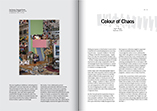
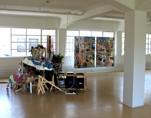

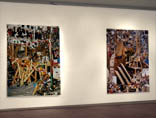
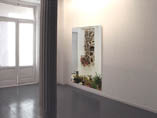
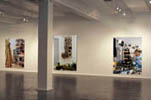
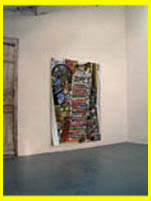
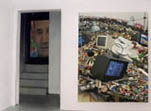
|
|
Notes towards a text on the recent work of Paul Eachus
‘Unplumbed’ at Keith Talent Gallery London
What comes into play with this work is the idea of 'bits'. the whole piece is made up of bits, conceptual bits that coexist in the space of uneasiness. The bits operate as fragments or clips from events or performances that by some circuitous route have found themselves momentarily in this space of uncertainty or of the 'not quite right'. Whilst coexisting within this new found space they have the potential to influence other bits or to be affected themselves by other bits, but essentially what emerges are new relationships, albeit temporary ones .Ones in which previously determined categorisations and frames of reference are but vague memories . The process of each work's coming into being is one of deliberately shifting and deflecting the sense of a logical consistency; as such, when a rational interpretation reveals itself and becomes possible it is then rapidly undermined, broken and destabilised not as an act of wilfulness for wilfulness' sake but as a means towards new relationships, new approaches, new forces.
New encounters are formed outside the logical, cold reason of visual narrativisation; familiar tropes of relations between things that enable us to maintain our control of these things around us are cast aside in favour of the risk of being out of control. The bits that constitute the work don't work like parts of a well formed organism as narrative – for the whole is not given, things are simultaneously starting up in the middle, ending at the beginning or falling together in other looser ways. There is a sense of being on a journey without an itinerary, taking a kind of conceptual trip for which no map re-exists the journey. It is essential that one's familiar discourse is left behind and that a risk is taken, one which makes the landing point quite uncertain.
The challenge is made to the viewer, for the authorial voice of the artist is in itself without the normally assumed status of holding power. The spectator/viewer is then invited to enter the space of uncertainty, demolishing the notion of transference, for it is this perpetual state of struggle on both the part of the artist and that of the spectator/viewer that brings the work into being. The linearity between producer and receiver in terms of knowledge and power transference and the maintenance of this relationshipis rendered useless.
Richard Rock 2004
|